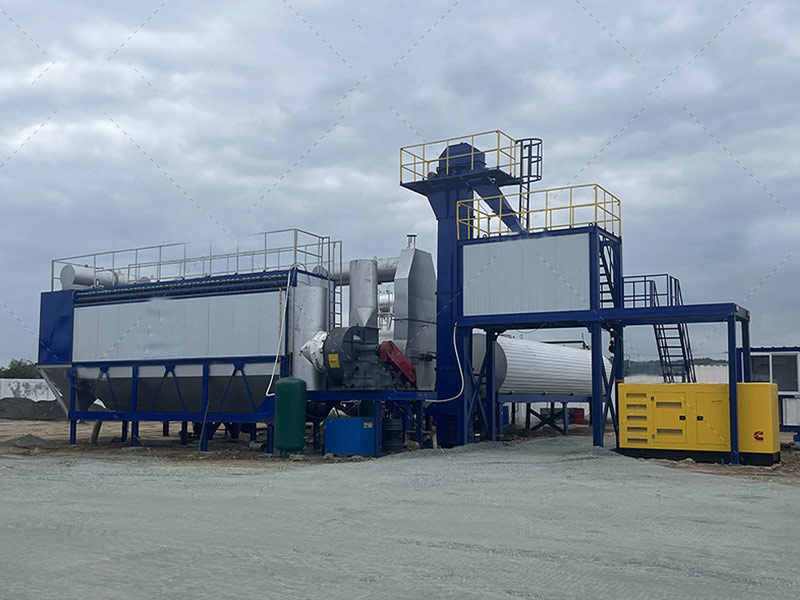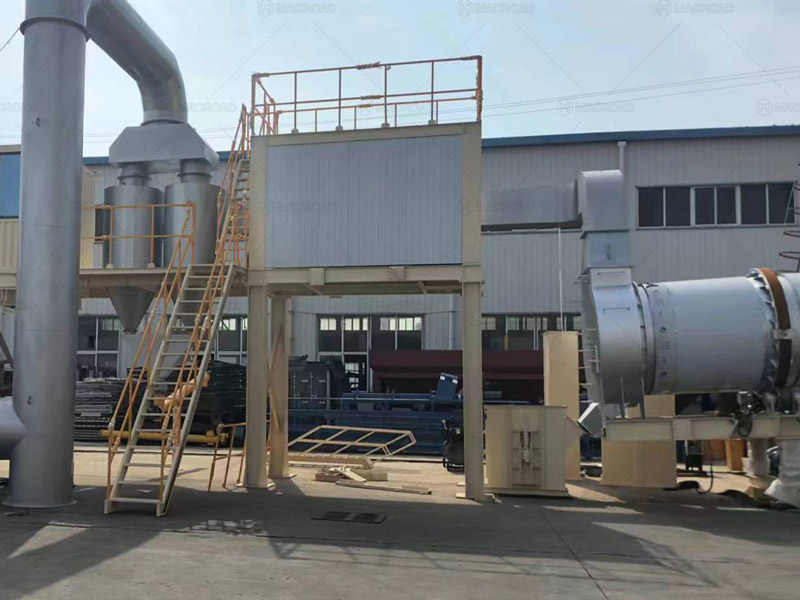Asphalt plant design plays a crucial role in meeting the diverse needs of customers, particularly when it comes to balancing budget constraints and operational capabilities. By implementing a hierarchical design approach, manufacturers can offer asphalt mobile plants that guarantee essential functions while providing optional value-added features. This strategy helps customers buy asphalt plants that align more closely with their specific requirements and financial resources.

Core Functions and Optional Add-Ons
In the design of asphalt mobile plants, the basic version typically retains only the core mixing and metering functions. This ensures that the plant can effectively produce asphalt without unnecessary complexity or cost. By focusing on these fundamental features, customers can invest in a reliable unit that meets their immediate production needs.
Optional modules, such as intelligent monitoring systems for remote fault diagnosis or advanced environmental protection upgrades like high-efficiency dust removal, are offered separately. This modular approach allows customers to tailor their asphalt mobile plant to their operational preferences and budget. For example, a small construction company may opt for the basic version to keep initial costs low, while larger firms might choose to add optional features to enhance efficiency and compliance with environmental regulations.

Compatibility Requirements for Modular Design
One of the key considerations in this hierarchical design is equipment compatibility. When adding optional modules later, it is essential to assess whether modifications to the main unit are necessary. A well-designed asphalt mobile plant will allow for seamless integration of additional features without requiring extensive alterations to the base unit. This flexibility is crucial for customers who may wish to expand their plant’s capabilities in the future without incurring significant additional costs.
Suppliers like Macroad ensure that their designs facilitate easy upgrades and modifications, enabling customers to adapt their equipment as their needs evolve. This compatibility not only makes the initial investment more appealing but also provides a pathway for future enhancements, thereby protecting the customer’s investment over the long term.

Long-Term Cost Considerations
When providing procurement plans, suppliers have a responsibility to clearly communicate the long-term use cost differences between various configuration versions. For instance, the basic version may incur higher operation and maintenance labor costs due to its lack of advanced features, while the value-added version could offer significant energy savings and reduced operational downtime.
By outlining these differences, suppliers empower customers to make informed decisions that align with their financial goals to buy asphalt plant. This transparency helps avoid common pitfalls such as over-procurement—where customers invest in unnecessary features—or insufficient functionality, where they may find their basic unit unable to meet operational demands.
Conclusion
In conclusion, the hierarchical design approach in asphalt mobile plant configurations allows manufacturers to cater to a wide range of customer needs, balancing essential functions with optional enhancements. By focusing on core mixing and metering capabilities in the basic version and offering valuable add-ons, suppliers facilitate more reasonable purchasing decisions for their customers. Furthermore, ensuring compatibility for future upgrades and providing clear long-term cost analyses helps prevent over-procurement and guarantees optimal functionality. As the industry continues to evolve, the ability to adapt asphalt plant design to meet diverse requirements will remain a key factor in customer satisfaction and operational success.